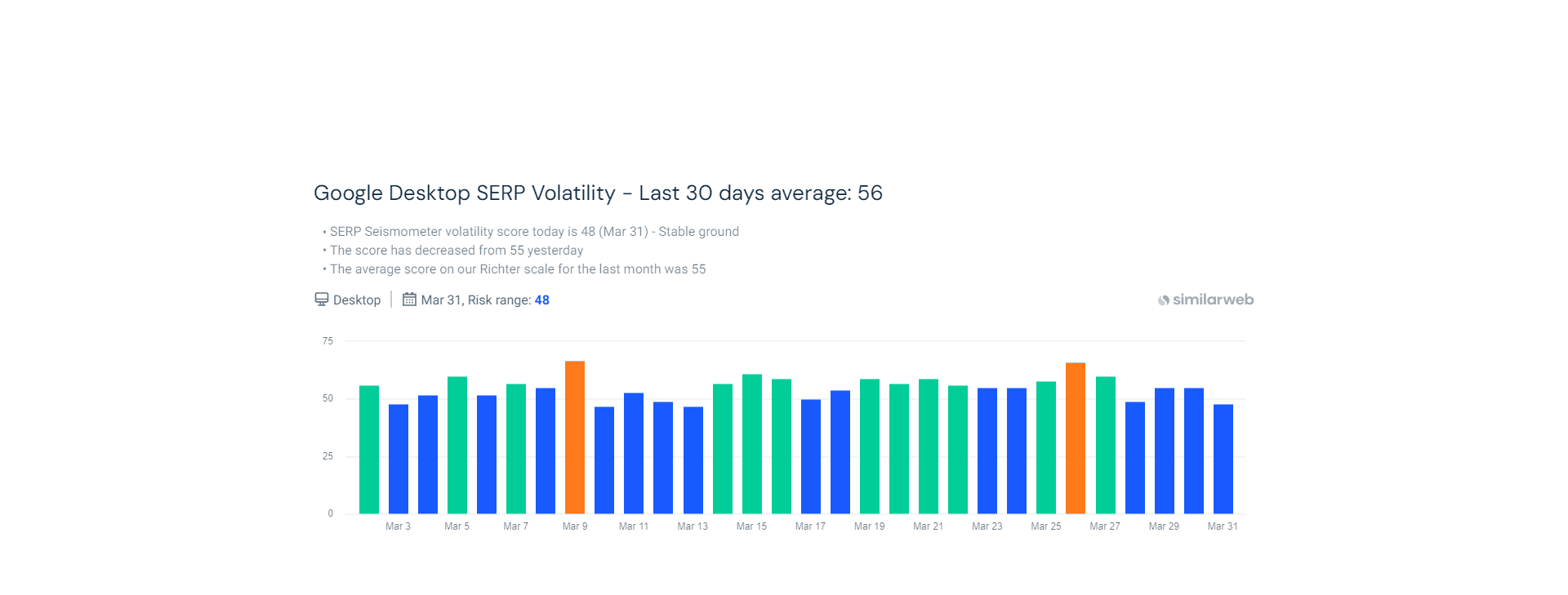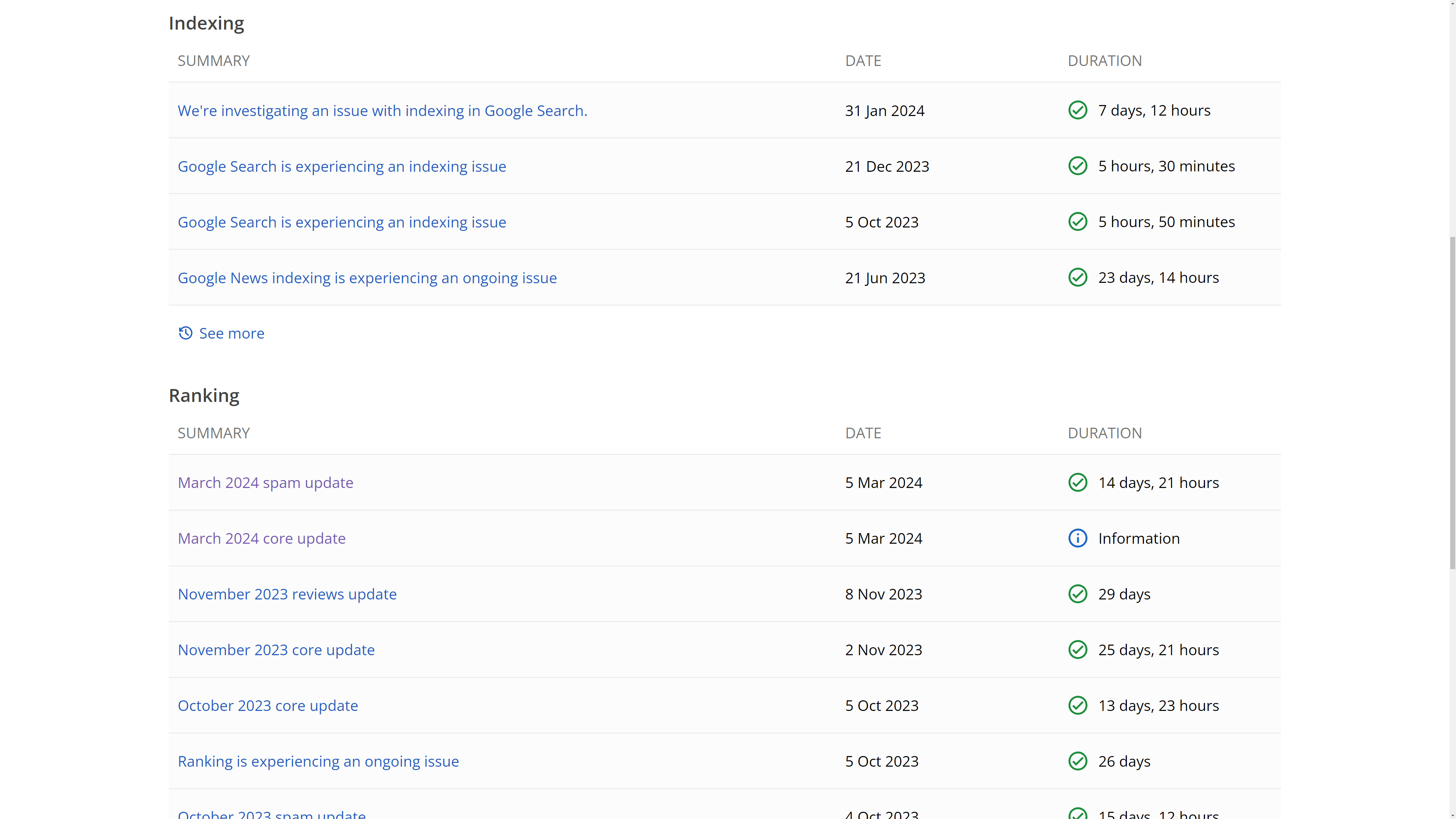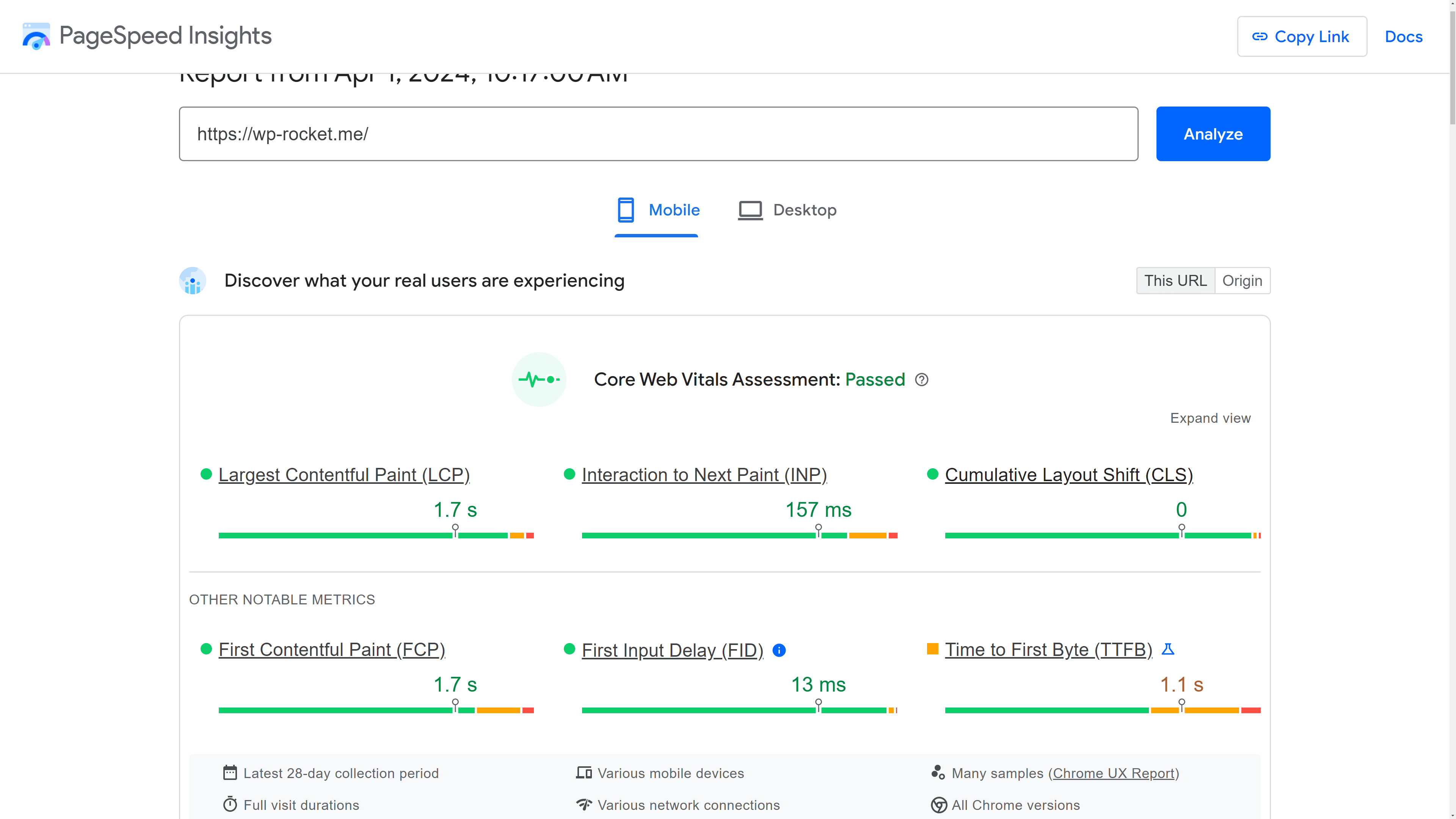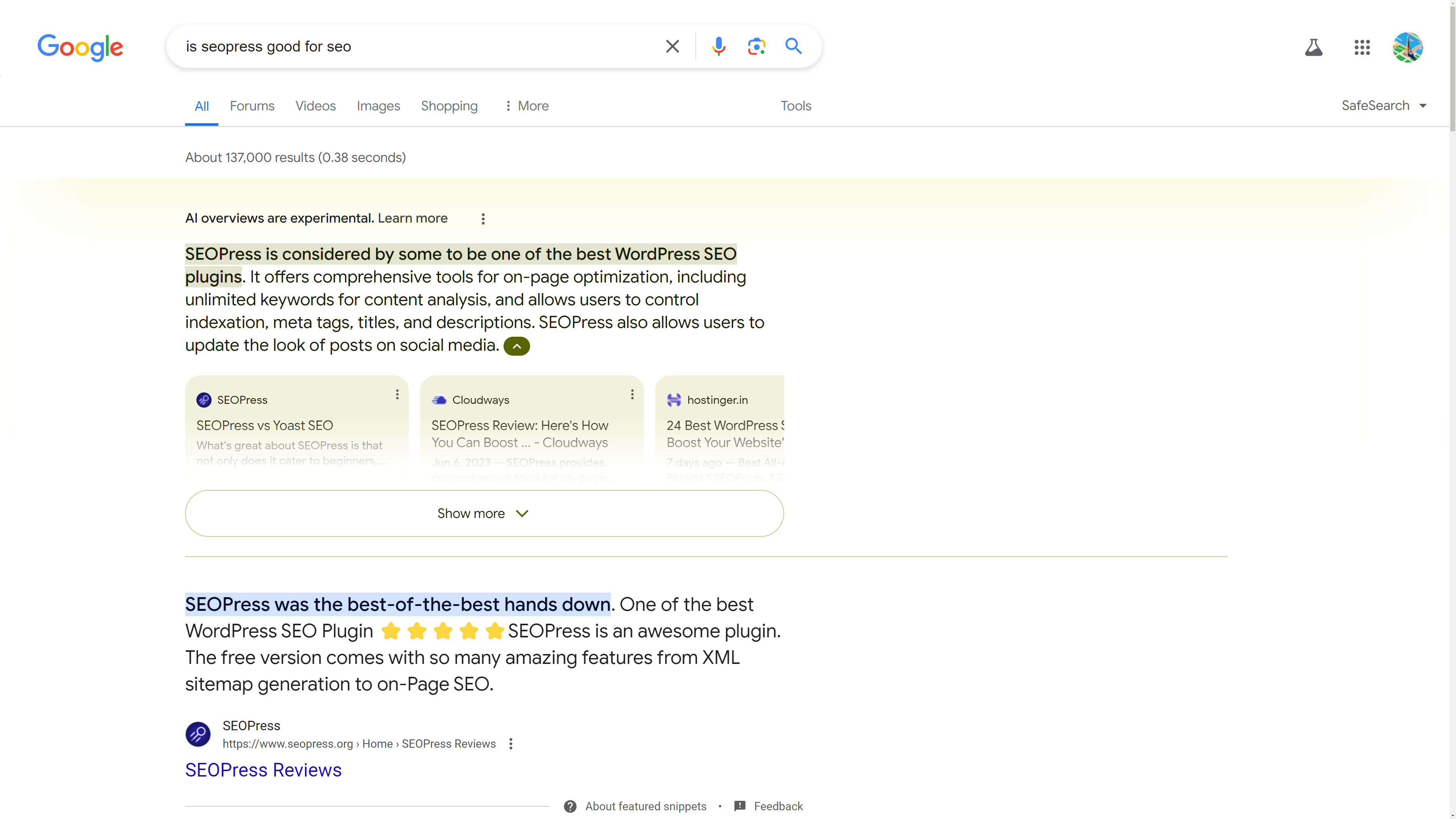In an attempt to improve the quality of search results, Google released two important updates simultaneously on March 5th, the March 2024 Core Update and the March 2024 Spam Update. Many sites have experienced ranking changes and hundreds have been blacklisted from Google. Users with SEOPress Insights will be able to see if ranking for their chosen keywords improved or crashed from March 5th onwards, but we suggest that you wait until the Core Update has finished rolling out to take any corrective actions.
Other big news is that Google revealed that AI-generated responses are being tested outside of the SGE experiment and rumors are that the full release is being timed for May 2024. This means that we are getting closer to a massive change in search and SEO.

March 5th – March 2024 Core Update
Google announced the release of the March 2024 Core Update through a post on X, a blog post on Google Search Central and a blog post published on Google’s The Keyword blog on March 5th.
The Director of Product Search at Google, Elizabeth Tucker, says in the Keyword article that her team “expect that the combination of this update and our previous efforts will collectively reduce low-quality, unoriginal content in search results by 40%”.
In the blog post, What web creators should know about our March 2024 core update and new spam policies, Chris Nelson from the Search Quality team at Google says “As this is a complex update, the rollout may take up to a month. It’s likely there will be more fluctuations in rankings than with a regular core update, as different systems get fully updated and reinforce each other. We’ll post to our Google Search Status Dashboard when the update is finished.”
In a follow up post on X, the Search Engine Central account also added a link to a new FAQ on Helpful Content that explains that signals and systems previously known as the Helpful Content System and Helpful Content Updates are now integrated into Core Ranking Systems. This Core Update almost certainly contains modifications to these signals and systems but such changes will longer be referred to as Helpful Content Updates. Early signs are that travel blogs are being particularly hard, but we will review the damage when the roll out is finished.

If you think that you may have been hit by the Core Update, you may want to read our article Recovering from a Google Update. But note that part of our advice is “A frequent and certainly a wise recommendation from many SEO experts is not to react to ranking changes while a Google Update is rolling out”.
March 5th – March 2024 Spam Update
The March 5th announcement from Google Search Central, What web creators should know about our March 2024 core update and new spam policies also mentions new spam policies and the fact that a March 2024 Spam Update was launched simultaneously with the Core Update.
The blog post featured 3 new spam policies that have been added to the official spam policies documentation: Expired Domain Abuse, Scaled Content Abuse and Site Reputation Abuse. The last policy will only apply from May 2024 so we can guess that the March 2024 Spam Update directly concerns either or one or both of the other new policies: Expired Domain Abuse and Scaled Content Abuse.
Expired Domain Abuse relates to buying expired domain names with the intention to manipulate search results by keeping a previous sites reputation. The examples given by Google are:
- Affiliate content on a site previously used by a government agency
- Commercial medical products being sold on a site previously used by a non-profit medical charity
- Casino-related content on a former elementary school site
Scaled Content Abuse has been widely referred as Google’s counterattack against AI-generated content. The article however stipulates that this “abusive practice is typically focused on creating large amounts of unoriginal content that provides little to no value to users, no matter how it’s created. This new policy builds on our previous spam policy about automatically-generated content, ensuring that we can take action on scaled content abuse as needed, no matter whether content is produced through automation, human efforts, or some combination of human and automated processes”. This seems to suggest that it is using AI to generate content may be fine as long as it is not used to generate an important quantity of new content.
The Spam Update started rolling out on March 5th and finished on March 21st.

Manual actions following new spam policies
As well as releasing new spam policies and a Spam Update on March 5th, Google also issued a number of manual actions to websites in March. A manual action is when a person from Google sanctions a website, either removing a website completely from the index or penalizing the site in results. Website owners that have signed up to Google Search Console will receive notifications by email if their sites are hit by a manual action.
On March 6th, SEO consultant Bill Hartzer reported on X that he had heard of at least 25 manual actions for “Pure Spam” and this was backed up by many other reports relayed by Barry Schwartz including many that say they didn’t use AI to produce content such as this one from @seoninja69 (although this username suggests that this person may not be just an innocent bystander hit by manual actions).
@searchliaison One of my 9 years old human content websites got a manual penalty & everything was de-indexed overnight
– All the content was human-written
-I was publishing 20 articles daily about celebrities and the entertainment industry pic.twitter.com/9wjAOddbK5— Learningweb (@seoninja69) March 7, 2024
It is thought that hundreds of manual actions were issued over just a few days. As a specialist in manual action removal, Bill Hartzer says that a website owner receiving manual action for Pure Spam would need to “completely remove all that content, start over with fresh new content, and then ‘beg for forgiveness’ from Google” to remove the manual action.
Taking into account the announcements of new spam policies, we may again assume that these manual actions are linked to either Expired Domain Abuse or Scaled Content Abuse and involve cases where the algorithm cannot yet detect this manipulation but a manual control by Google staff has confirmed that spam policies have been abused. Google obviously had these manual actions ready to go but needed to update their spam policies before applying them.
INP now officially a Core Web Vital
Core Web Vitals are 3 scores given to pages based on actual visits from users. They measure page speed and user experience using data collected by the Chrome browser. Pages with enough page views in Chrome can pass or fail Core Web Vitals. Passing Core Web Vitals can boost ranking, so it is an important reason to check your scores and improve them.
The 3 scores used to determine Core Web Vitals are LCP (Largest Contentful Paint), CLS (Cumulative Layout Shift) and INP (Interaction to Next Paint). The INP metric officially replaced FID on March 12th and this may have led to some of the ranking changes experienced on March 13th, 14th and 15th.
You can discover your Core Web Vitals scores of individual pages using the PageSpeed Insights tool.

INP measures the time it takes for a web page to react to a user interaction. For example, the time it takes for a click on a question in Q&A accordion to open the accordion and show the answer. INP will measure all the reaction times during a visit, whereas FID only measured only the first user interaction.

For more information on how to optimize your INP scores in WordPress, we recommend this article from WP-Rocket. You may also be interested in listening to the Search Off the Record podcast with John Mueller, Lizzi Sassman and guest Rick Viscomi from the Chrome Web Performance team.
SGE available to wider audience
Barry Schwartz reported on Search Engine Roundtable that he was told by Google that it would start testing AI-generated responses in Google Search results to a small sample of US users at the end of March. This feature was only previously available to users who subscribed to SGE (Search Generative Experience) in Google Labs. Barry later reported on users seeing SGE type results live from March 28th and this included some who were complaining that there was no way to turn these results off.
In a separate article published on Search Engine Land, Barry shared rumors that Google will release AI-generated responses to all Google Search users on May 14th to coincide with the Google I/O 2024 event. This makes sense, SGE was formally released at Google I/O 2023 in May 2023. Adding AI-generated responses to Google Search for all users would be a massive change to Google and SEO as this is effectively a new search engine with the clear intention to generate a response to a query rather than generate visits to web sites. Keep following our news to find out more.




